.
Certain names are etched not just for their achievements on the pitch but for the doors they kicked open, paving the way for generations to follow.

Uche Eucharia is one of those rare figures. From a precocious young girl kicking balls on the streets of Owerri to becoming the first female head coach of Nigeria’s beloved Super Falcons, her journey is a testament to resilience, courage, and groundbreaking leadership in a male-dominated sport.
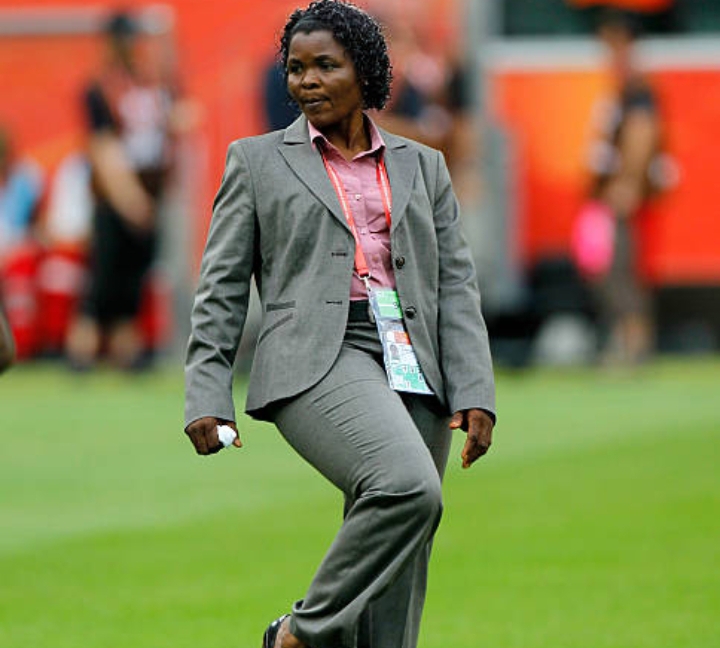
Born on June 18, 1973, in Mbaise, Imo State, Uche Eucharia grew up in a modest, middle-class household as the first of five children. Raised in the heart of Owerri, she displayed an early passion for football, an unusual choice in a society where young girls were often steered towards more “acceptable” hobbies.
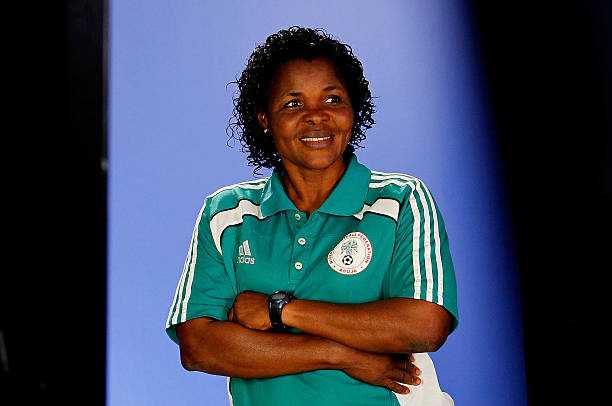
While attending Egbu Girls Secondary School, Owerri, Uche found herself drawn to the football field, often playing alongside the boys. Her natural talent was impossible to ignore. Encouraged by a few teachers who saw her potential, she continued to hone her skills, even as societal expectations tried to keep her away from the game she loved.

After secondary school, Uche enrolled at Delta State University, but the allure of football remained irresistible. By then, her reputation on local pitches was growing, and soon, opportunities came knocking.
Uche Eucharia’s playing career reads like a roll call of Nigeria’s top women’s football clubs. She featured prominently for Bendel Striking Queens (now known as Edo Queens), Rivers Angels, and Ufuoma Babes (now Delta Queens). Her prowess as a forward was clear from the outset: she was quick, intelligent, and deadly in front of goal.
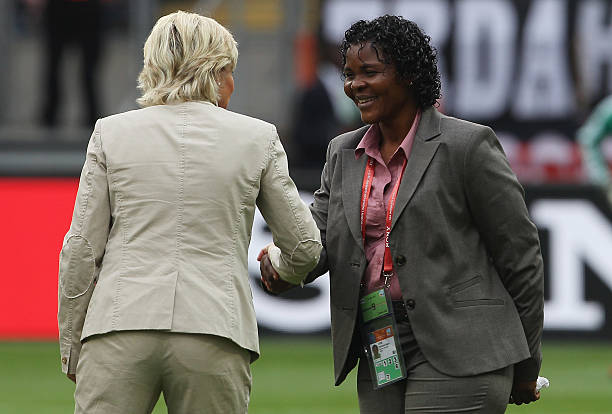
But it was on the international stage that Uche etched her name into history. Donning the green and white jersey of the Super Falcons, she became the first Scorer in an international match and, in a CAF organized World Cup Qualifiers fixture against Ghana in 1991.

For Uche, every match wasn’t just a contest, it was a platform to prove that Nigerian and African women could excel at the highest level of football, despite limited resources, recognition, and support.
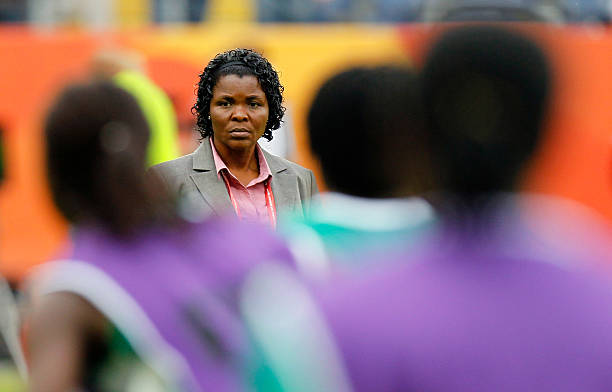
Retirement for Uche Eucharia didn’t signal an end to her love affair with football. Instead, it marked the beginning of an even more impactful chapter. She transitioned into coaching, armed with the same grit and hunger she displayed as a player.
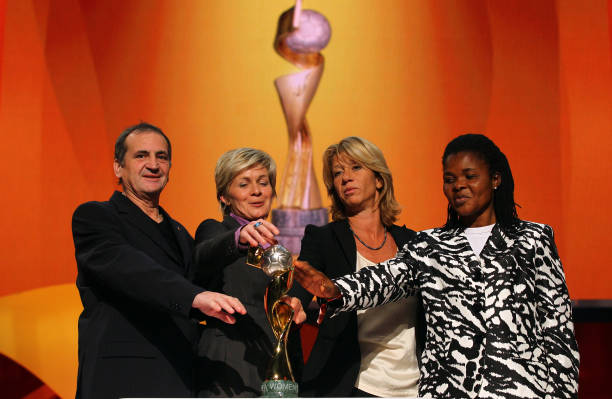
After gathering experience as a club coach, Uche”s tactical acumen and ability to inspire players made her a standout candidate for national duties.
Her big break came when she was appointed as an assistant coach of the Super Falcons in 2000, making history as the first female assistant coach of the team. She was part of the technical crew that guided Nigeria to an African Women’s Championship (AWC) title that same year.
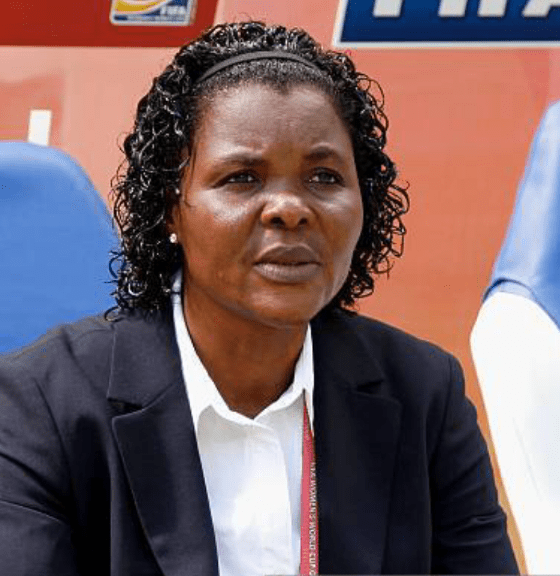
A decade later, in 2010, Uche Eucharia shattered yet another glass ceiling. She was appointed the first female head coach of the Nigeria women’s national football team, a groundbreaking moment for Nigerian and African football.
And she didn’t disappoint. In her debut year, she led the Super Falcons to victory at the Women African Cup Of Nations in South Africa, defeating Equatorial Guinea in the final. With that, she became the first woman coach to win the African Women’s Championship, a crowning achievement in her storied career.
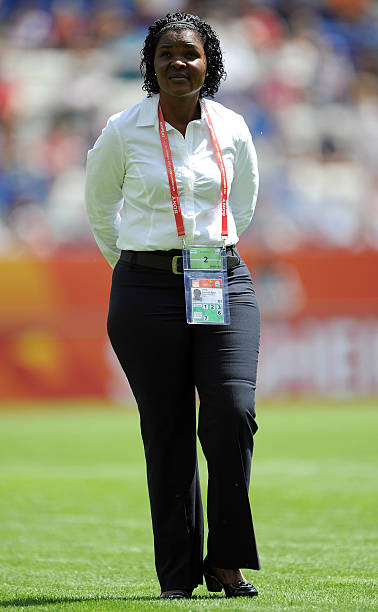
But football, like life, is a game of highs and lows. In October 2011, Uche was relieved of her duties after the Super Falcons failed to qualify for the 2012 Summer Olympics. It was a bitter pill to swallow for a trailblazer who had given so much to the sport. Yet, as she had done throughout her career, Uche turned adversity into an opportunity for growth.
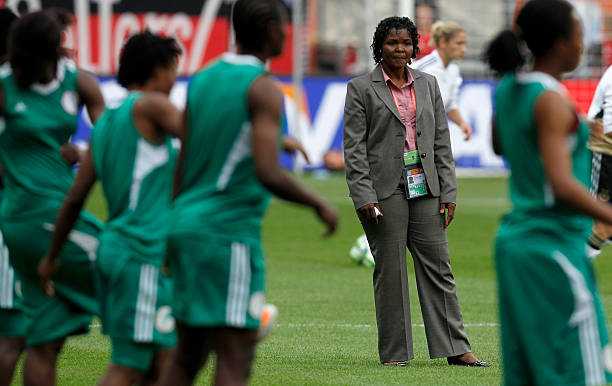
Today, Uche Eucharia remains a powerful force in African football. She served as an instructor for both FIFA and the Confederation of African Football (CAF), using her wealth of experience to mentor and train the next generation of coaches and football administrators across the continent.
Her story resonates beyond the boundaries of sport. It’s about courage in the face of convention, about daring to dream and defying the odds. It’s about a woman who not only played the game but changed it.
Uche Eucharia’s legacy is visible in every young girl in Nigeria picking up a football, in every female coach charting her path in the dugout, and in the growing recognition of women’s football in Africa. She laid the foundation for names like Florence Omagbemi and others to follow and surpass.




2 Responses
Thank you for the beautiful piece. What you however failed to mention is that she graduated with NCE , majoring in Physical and Health Education, from then Alvan Ikoku College of Education, Owerri . As a matter of fact, I taught her in her 2nd year at Alvan, 1985/86 academic session.
Thank you.
I am indeed thrilled to read through this biography of a true legend. Often times, contents like this are spiced up with colorful exaggerations, not this one. Coach deserves all accolades and much more for her consistency and love for her fellow man. Congratulations great woman. May the universe continue to celebrate and inspire you for greater achievements.